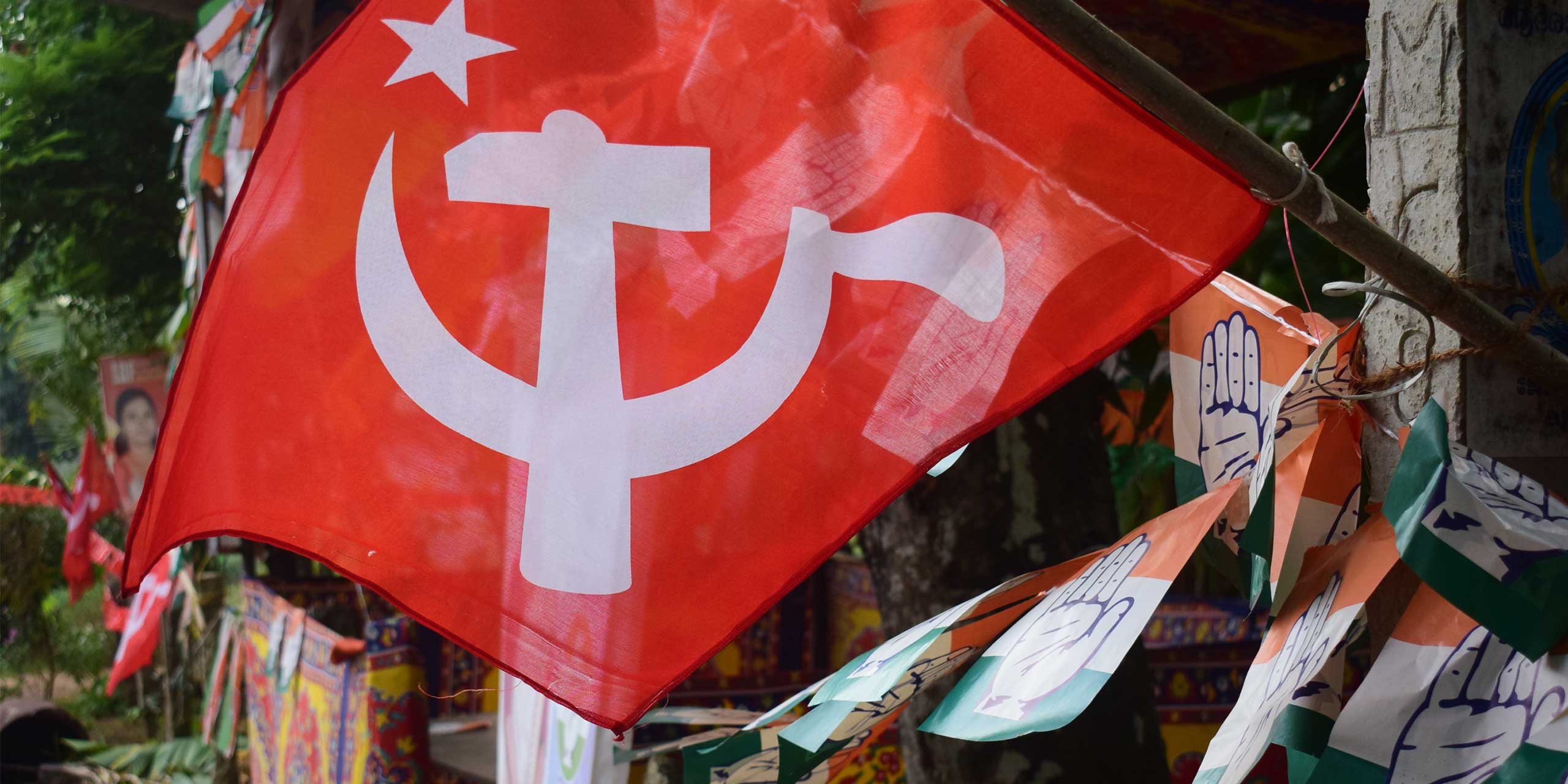
Periyar Tiger Reserve, houseboats on the backwaters, tea plantations — Kerala is a favorite spot for travelers to South India, and it is indeed a curious place. Visitors will find themselves shopping in “Jew Town” and visiting Gothic cathedrals outside of rainforests, but one of the stranger things guests might notice when traveling down the crowded roads is the sight of hammer and sickle flags flying from rooftops and streetside stalls. Why?
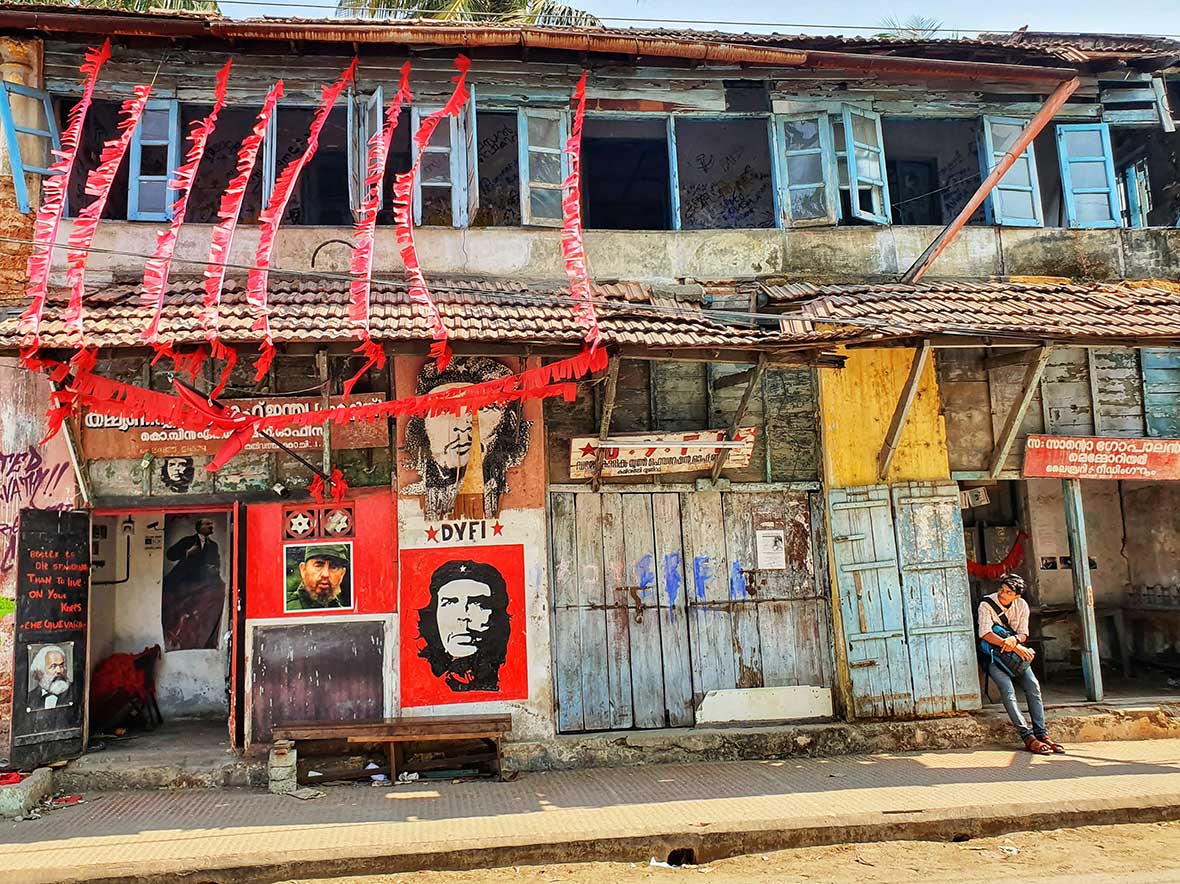
The birth of the surviving Communist Party of Kerala is largely attributed to P. Krishna Pillai, “Kerala’s first communist”. Not identified by the state repression of China or the depressive sanctions of Cuba, the class and caste struggle in India was intertwined with that of fighting colonialism. On the march from Vadakara to Payyannur to participate in the salt sathyagraha in January 1930 — when Ghandi himself walked to the beach to make salt in defiance of British rule — communist stalwart Krishna Pillai took a position of flag bearer.
Though tourists might better know the areas of Rajasthan and Ladakh by name, once upon a time the Cochin Kingdom and Travancore Kingdom, which now form Kerala, were at the center of the world due to the lucrative trade in spice — and its exploitative labor system. Following the Malabar rebellion in 1921, the new ideas of Communism began to gain traction with the Muslim working classes of Malabar.
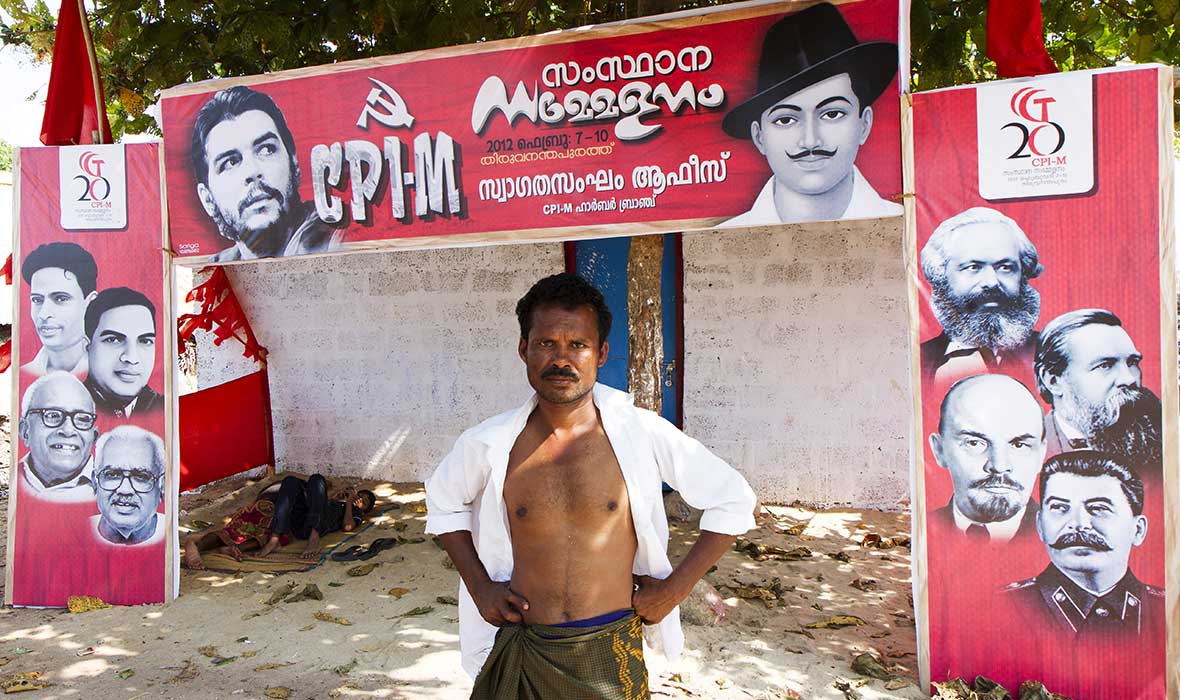
By 1938, the whole of Kerala had joined in the fight against colonialism and socialist congressional candidates were elected for the Malabar district. The next year, at a secret meeting known as the Pinarayi Conference, the Communist Party was officially announced.
The party, unlike many other communist movements throughout the world at the time, operated within the confines of a democracy, and Krishna Pillai traveled the state, recruiting workers to the cause until he was bitten by a snake in 1948. His final words became the party’s rallying call, “Comrades, Forward!”
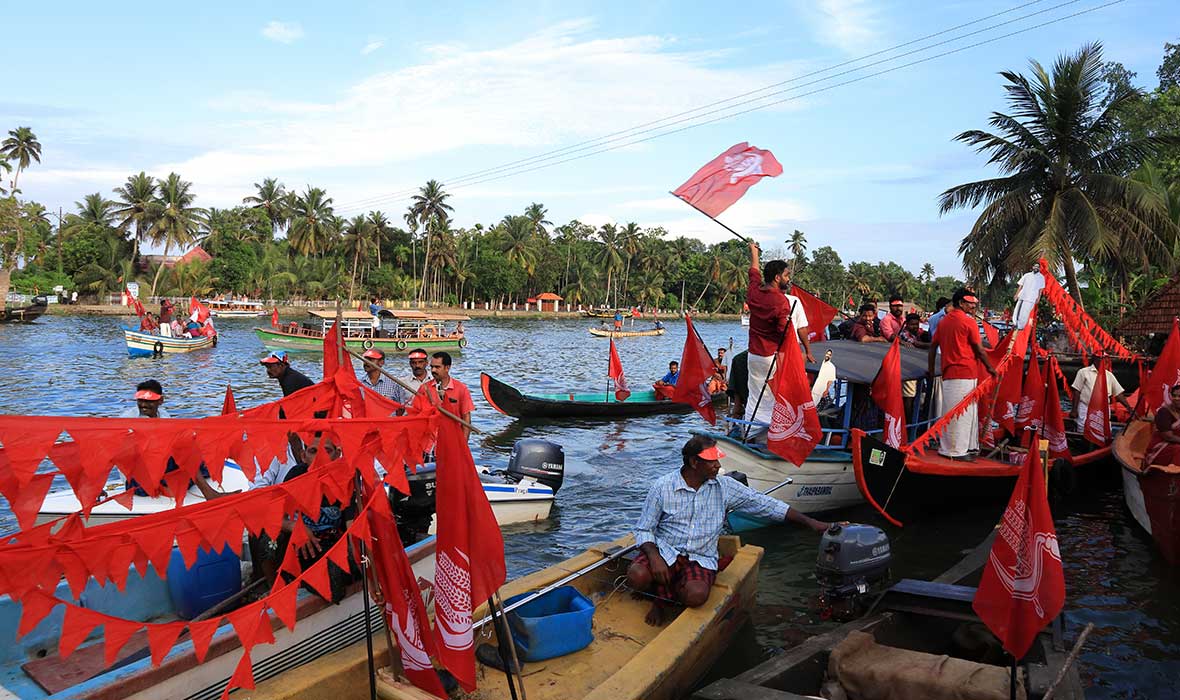
Part of the Party’s early success came from the aptly named 1952 play ‘Ningelenne Communistakki’, meaning, “You made me a communist”, which is performed in Malayalam. The plot sees an upper-caste older man become a communist. An anti-feudalism piece, the play was banned the following year for subversive ideas, and when the play was staged in Kovalam in defiance of the ban, all the artists were arrested. It has been said that the play has been put on more than ten thousand times since its original showing. And, in fact, the play made a comeback in 2018.
After independence, Kerala was recognized as a state. The Communist Party continued to eschew Cold War politics and work inside the electoral system — and won handily. In 1957 the Communist Party secured a majority in Kerala. Afterward, the Party’s anti-religion, anti-caste stance would make it a number of enemies, from the Catholic church to the Indian Union Muslim League. They implemented a number of reforms, and though they would lose the next election, they remain a force in Kerala politics to this day.
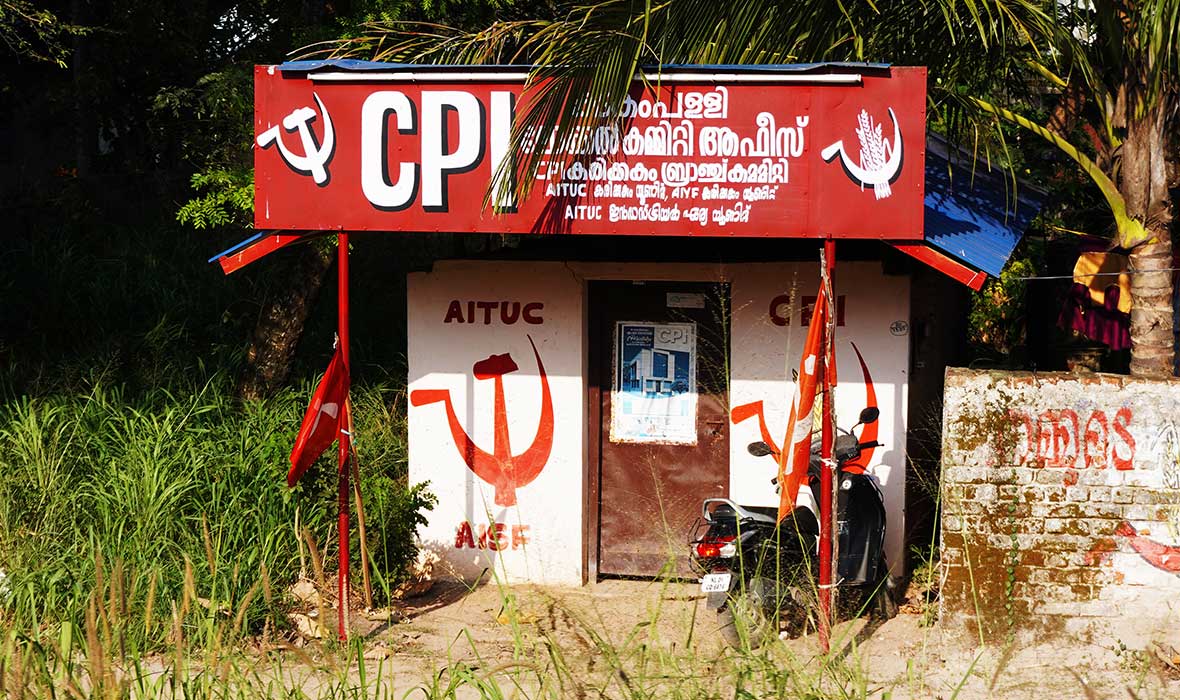
The communist symbol of the hammer and sickle remains one of the only communist relics travelers will find on their journey through Kerala, but it is a potent reminder that some of those ideas that once swept the world are still very much alive and even constructive in a southern corner of India, an idea many hold dear to their hearts. In the 1970s and 1980s, as the Cold War raged, parents would name their children after Soviet leaders like Lenin and photos of Joseph Stalin, were hung on party walls.
Today, the party is on its last legs. The leaders keep the faith in campaigning and in their speeches, some promising communism will rise when the economy falls, others concentrating on local issues. In the strange Kerala mix of Christian cathedrals, Malayalam, Jewish temples, Dutch forts, and wild jungle, Soviet-era communism seems both out of place and quite at home.
